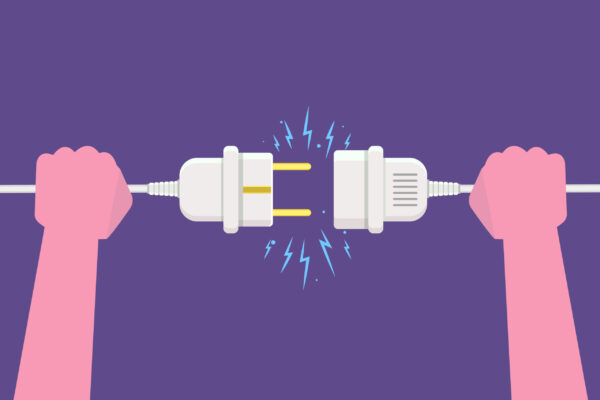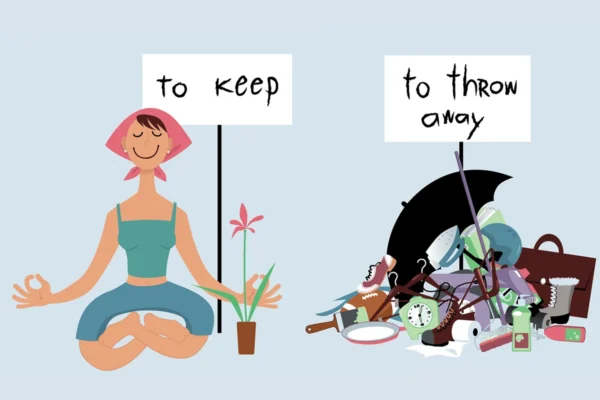Trendy Lifestyle Hacks
15 Slow Living Tips
Slow living celebrates a purposeful and meaningful way of life, free from pretense. Here’s how you can embrace it with grace and ease.
Embracing slow living is more than just a trend—it’s a transformative approach to life that emphasizes savoring each moment and prioritizing what truly matters. In our fast-paced world, where constant activity and busyness often dominate, slow living offers a refreshing alternative. It’s about deliberately choosing a path of mindfulness and intention, allowing yourself to experience life more fully and deeply.
By adopting a slow living mindset, you can reduce stress, enhance your well-being, and build richer, more meaningful connections. It’s not about idling away time or avoiding responsibilities; rather, it’s about making conscious choices that lead to a more fulfilling and balanced life.
If you’re ready to slow down and embrace a lifestyle that values quality over quantity and depth over speed, here are 15 practical tips to guide you on your journey. These strategies will help you create a more purposeful and satisfying life, one moment at a time.
What is Slow Living?

Slow living is a lifestyle concept that originated from the Slow Movement in the 1980s, spearheaded by Carlo Petrini and activists in Italy. Initially, the movement aimed to protect regional culinary traditions and oppose the fast food culture symbolized by the proposed McDonald’s in Rome’s Piazza di Spagna.
Over the years, this movement has expanded globally, influencing areas like Slow Food, Slow Travel, and Cittaslow (slow towns). Its core idea is to combat the stress and consumerism of modern life by promoting a more mindful and deliberate approach to living.
Slow living is about enhancing your quality of life through self-care, thoughtful consumption, and deeper connections with your environment and others. It’s not just a trend but a meaningful way to support your well-being and appreciate life’s simple pleasures. Here are some practical tips to help you incorporate slow living into your routine, whether you’re trying it temporarily or embracing it as a new lifestyle.
1. Embrace a Spiritual Practice
Begin each day with a spiritual practice to set a positive tone for what lies ahead. This practice can help prepare your mind with the strength, patience, and courage needed to navigate daily challenges.
Dedicate time daily to express gratitude for the new day, acknowledging your Higher Power, whether it’s God or another source of inspiration, for the opportunity to grow and improve. Seek guidance and ask for focus and a grateful attitude to face whatever comes your way.
Incorporate motivational speeches and uplifting music to prime your mindset, ensuring you’re ready to tackle any obstacles with resilience and positivity.
2. Prioritize Presence Over Productivity

Slow living invites us to embrace each moment fully rather than perpetually striving for the next achievement. Take time to appreciate the present—soak in your surroundings, engage deeply in conversations, and savor every bite of your meals.
Allow yourself to fully experience and enjoy your meals, whether you’re dining alone or with loved ones, instead of letting your mind drift through a never-ending to-do list.
Make a deliberate effort to be present during the brief moments you set aside for yourself or with others. Embrace the here and now, and relish the experience of simply being.
3. Cultivate Mindfulness
Mindfulness is about intentionally focusing on the present moment without judgment. Integrate mindfulness practices into your daily routine, such as five or ten minutes of meditation, deep breathing exercises, or mindful walking.
These simple practices encourage you to reconnect with your body and mind, redirecting your energy and attention to your current thoughts and feelings. They help clear your mind, soothe your spirit, and gradually ease accumulated stress from various parts of your being.
4. Create Space for Reflection

Set aside time for self-reflection to gain insight into your values, goals, and future directions in both personal and professional areas. Activities like journaling, quiet walks, or meditation can help clarify your aspirations and decisions.
Dedicate moments to organize your life, plan your next career move, or strategize for business ventures. Allow yourself the space to reflect, plan, and evaluate your path forward.
Make it a habit to periodically withdraw from your routine, even if just for a few minutes or hours, to delve into your thoughts and inner work. This pause can provide renewed clarity, focus, and a refreshed perspective to tackle life’s challenges.
5. Unplug and Disconnect

Make it a priority to regularly disconnect from digital distractions. In an era where we’re constantly exposed to social media and media negativity, a digital detox is essential.
Set specific times each day for screen-free activities, particularly during work hours or when spending quality time with loved ones. This practice helps you fully immerse yourself in the real world and enhances your interactions with those around you.
6. Feed Your Body with Nourishing Foods
Reduce your intake of fast foods, sugary drinks, and processed meals for better health. Embrace a slower approach to eating by savoring each bite and choosing nutrient-rich, whole foods.
Cooking with intention can transform your meal prep into a mindful practice. Take the time to enjoy the process and explore how it enhances your well-being.
7. Reduce Clutter

Streamline both your physical and mental spaces by removing unnecessary items and distractions. Let go of outdated possessions, like those jeans that no longer fit, and create a calming environment with natural fabrics and minimalist decor. Simplify your surroundings to foster a sense of tranquility and order.
8. Practice Daily Gratitude
Make gratitude a daily habit by consistently recognizing and appreciating the positives in your life. Consider keeping a gratitude journal to help reinforce this practice.
Even during the busiest days, set aside a minute or two to verbally express or write down at least five things you’re thankful for. This simple exercise helps you focus on your blessings and maintain a positive outlook, even amidst challenges.
9. Engage in Deep Listening
Fully immerse yourself in conversations by focusing on the speaker and actively listening without preparing your response in advance. Pay close attention to their body language, tone of voice, and the nuances of their message. Deep listening goes beyond simply hearing words; it involves grasping the full meaning and emotion conveyed.
10. Embrace Gentle Movement

Incorporate activities like yoga, tai chi, or peaceful walks into your routine. These slow-paced movements help you connect with your body and breath, fostering a sense of calm and balance.
By engaging in these practices, you’ll enhance your awareness of your body’s needs, recognize when you’re feeling your best, and identify when you need rest or notice any discomfort. Essentially, gentle movement becomes a means to stay in tune with both your inner and outer self.
11. Establish Boundaries

Embracing the power of “no” is essential for maintaining your well-being. It’s a simple, complete answer that doesn’t require justification. Learning to say “no” with compassion for both yourself and others is crucial for protecting your time and energy.
Setting boundaries helps you focus on activities that enrich your life and benefit those you care about. It’s a form of self-care that defines your personal limits, guiding what you will and will not tolerate. By establishing these boundaries, you can better manage your time, resources, and energy, ensuring they are directed towards positive and fulfilling endeavors.
12. Prioritize Quality Sleep
Make restful sleep a top priority. Develop a calming bedtime routine that promotes relaxation and ensures you receive the restorative rest essential for your body and mind. Working excessively with little to no sleep or engaging in numerous late-night activities can be detrimental to your health.
In contrast, a consistent and healthy sleep schedule safeguards your mental and physical well-being, preparing you to face each day with renewed energy and resilience.
13. Connect with Nature

Immerse yourself in the natural world as a key aspect of slow living. Take leisurely strolls in the park, explore wooded trails, or simply unwind in a garden, allowing yourself to sync with the natural rhythms of the earth.
When possible, organize solo or group picnics in your backyard or at a nearby park during the warmer seasons to savor the outdoors. If feasible, visit the beach to enjoy swimming and exploring the coastal environment. Alternatively, plan a countryside retreat with your family, such as spending time at a vineyard or camping in a national park or forest.
14. Embrace Creative Expression

Foster your creative side by engaging in calming activities such as painting, writing, or playing a musical instrument. These creative pursuits not only offer a meaningful outlet for self-expression but also enhance your ability to focus and pay attention to detail. Whether you’re crafting poetry, composing a song, or working on a DIY project, these activities encourage a sense of flow and fulfillment.
15. Embrace Imperfections

The Japanese philosophy of “wabi-sabi” teaches us to find beauty in imperfections and to respect the natural cycles of life. Inspired by this ancient concept, let go of the quest for perfection and instead view flaws and mistakes as chances for growth and learning. Appreciate the effort put into any task, whether it’s your own or someone else’s, and seek to find value and lessons in both the joyful and challenging aspects of your journey.


